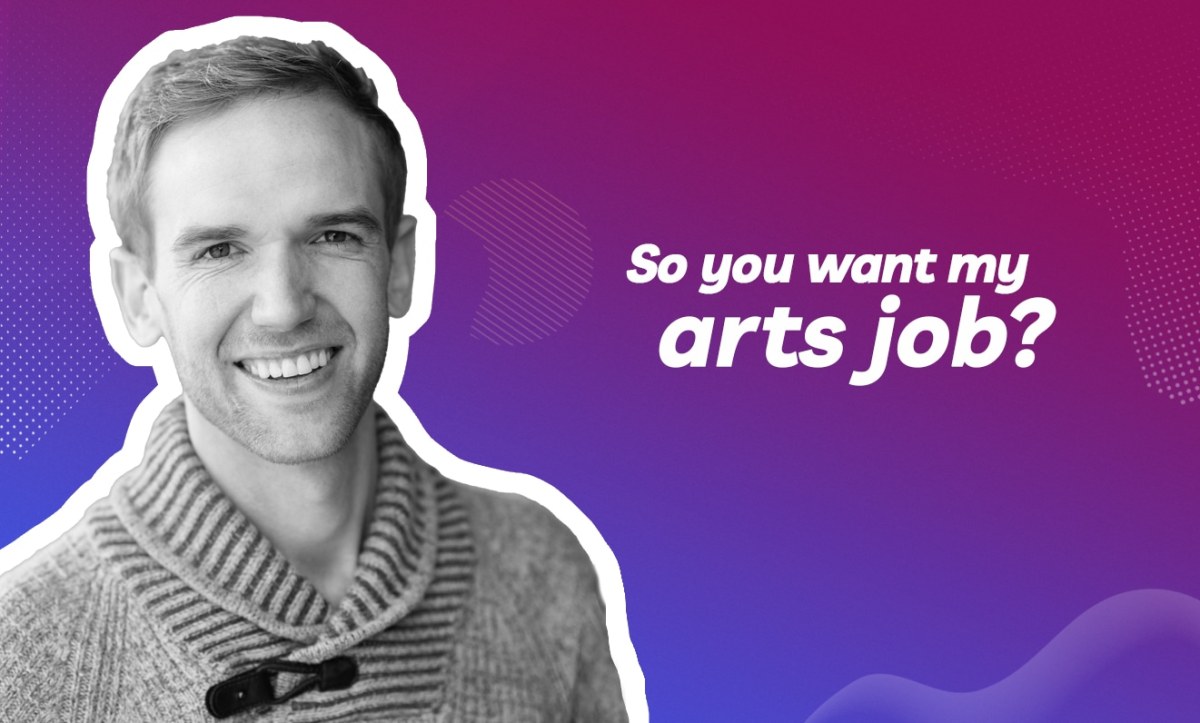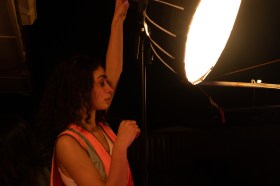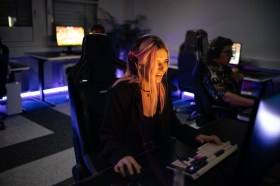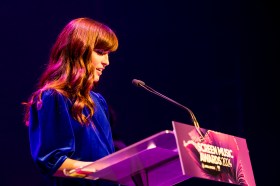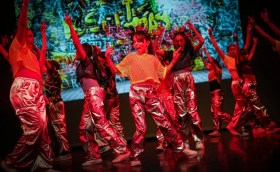Aaron Walton graduated from the Victorian College of the Arts (VCA), where he received the Beleura John Tallis Award for Excellence in Acting. Credits include the TV’s Winners and Losers, and the antagonist in Australia’s first one-shot feature film, Watch the Sunset, now streaming on Stan. As well as being an actor, Walton is also a practising psychologist and a PhD candidate at the University of Melbourne, researching free will and well-being.
How did you first get started in acting?
I did the one-year Foundations course at VCA, a really great place to start. That had one term on movement and text, one on scene studies, one on film and TV, and one on rehearsing and performing a play to the public. I’m not sure if they do it the same way now. To be more specific, it was really the encouragement of two of the teachers, Megan Jones and Matt Scholten who gave me my start. They saw the artist in me, nurtured my spark and Matt then cast me in my first play. Finding and cherishing those people who see you creatively is so important.
Read: Want to be a film composer? Meet Cezary Skubiszewski
What are some of the misconceptions about acting?
1. That it’s pretending. Oscar Wilde apparently once said, ‘I love acting, it’s so much more real than life.’ There’s something profoundly true about that. In life, we often have to pretend and hold back in subtle ways. In acting, you are of course pretending that the given circumstances are real, but then you fully inhabit the truth of that experience in ways that you might rarely do in real life. You have the chance to inhabit a person and fight for their wants and dreams as if for real, as if you had been born into their genes and environment instead of your own. If you really go there, that is nothing like pretending.
2. That auditions are like acting tests where the best performance gets the role. It’s about being the right fit in the minds of those doing the choosing.
3. That actors are shallow. Hollywood may be replete with shallowness, but most actors are not Hollywood actors. They’re often the deepest waters I know and I wade in diverse pools.
You have acted for the stage and the screen. Do you have a preference and what are some of the key differences between them?
I love stage and screen. Overall I prefer screen because I am in love with film and because it generally allows for more natural performances. I like connecting to really natural, authentic human truth as opposed to a subtly performative human truth that theatre often requires. A craft of theatre is of course to sustain authenticity while projecting physically and vocally to the back row of a theatre, but doing so always takes something away from the absolute naturalness of performance, at least in moments.
Read: Want to make short films? Jessica Trueman says: ‘preparation is key’
I love being able to whisper if I want to whisper, to do whatever comes naturally vocally, given the voice is the flower of truth. But I do love the slightly heightened nature of theatre too. The live element of theatre is magical – it’s being created and received at once. And the text is usually richer in theatre. Then there’s the ephemeral/enduring trade-off: theatre is more precious with birth and death on the same night, screen is able to be experienced multiple times, across versions of the self and of society as both evolve, the experience is different each time.
For those who are interested in acting, what would you recommend they study or do to break into this very hard industry?
It depends. I think the three-year full-time classical training is very worthwhile. Obviously the big schools like VCA (Victorian College of the Arts), NIDA (National Institute of Dramatic Art) and WAAPA (Western Australian Academy of Performing Arts) are great options and always in high demand, so expect to audition multiple times, and understand that almost everyone who auditions to these schools never gets in, so don’t be discouraged. There are other similar options. Like The National in St Kilda or BAPA (Ballarat Academy of Performing Arts) for Victorians.
Read: Want to be a director? Erin Good says ‘get a side hustle’
But if you’re only interested in screen work, then there are great screen schools. I hear good things coming out of 16th Street Actors Studio, Howard Fine and TAFTA (the Australian Film and Television Academy), but look for a school where the fit feels right for you. I think even if you’re only interested in screen that the major drama schools are still a great investment, because you do really deep work for such a long time surrounded by really talented people. And then just get experience! Audition for community or independent theatre. Put on your own plays. Audition for student films at VCA, SAE, JMC Academy and university film schools, or short films on StarNow or casting networks.
Read: So you want my arts job: Intimacy Coordinator
Make your own work. Find other creatives to work with. Write your own short films and source a crew to film them. Just do the thing and do it a lot and don’t expect any specific outcomes. Just keep doing the thing because you love it and want to get better. Then, when you feel you’ve got some good clips, make a showreel and approach agents.
What are you working on now and what was the last featured film you worked on?
A film I did a couple of scenes in, Subject, recently had its premiere in Melbourne and is now being released in the US. It features a powerhouse performance from Steve Phillips. It was great to work again with the wonderful director Tristan Barr, with whom I worked on Australia’s first one-shot feature film, Watch the Sunset. Also an audio drama I was in, Hovering by Alex Duncan, is in post-production. Nothing is currently on my plate acting wise other than the odd ad audition, though I’m writing a novel that I may make into a film script at some point. And I do some acting coaching, which keeps the muscle fit.
How would you describe the health of the independent Australian filmmaking scene?
I don’t feel like I am sufficiently qualified to answer this question with any conviction. But there’s always good work being made. I feel we suffer in Australia from a small population, meaning weak local demand and not a lot of private film financing. It seems very reliant on government funding, which is necessarily a little antithetical to creativity, as you have to write certain kinds of stories to get funding.
